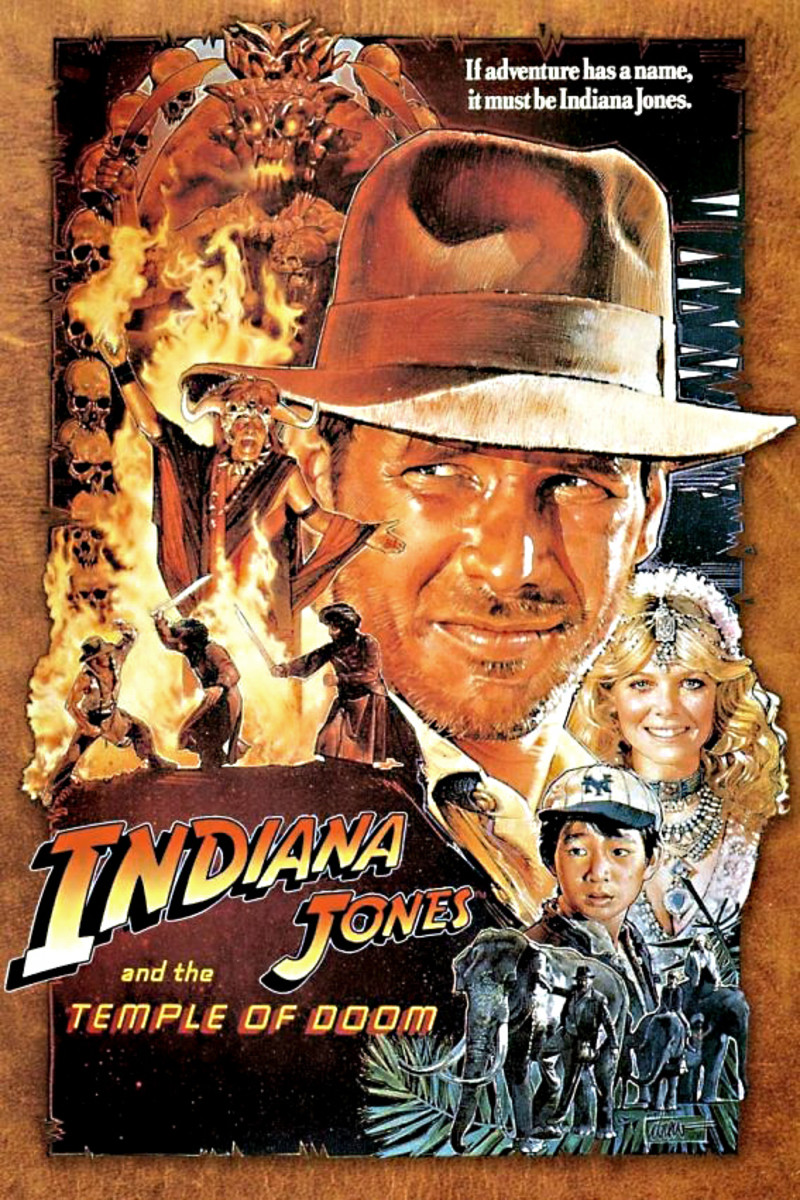Secret Agents in Joseph Conrad's The Secret Agent and the 2005 Movie Munich
Secret agents and assassins have long held attraction in public media and entertainment because they are people above the law, tasked with demands that normal people can only imagine. Their strengths are what give them power, and it is in this power that they are capable of actions that most common people would find reprehensible by nature. However, it is often in the greatest strength that one finds their greatest weakness—and this hold true with the characters of both Avner Kaufman of the movie “Munich” and Mr. Verloc of the novel “The Secret Agent.” To best define the ideals of strengths and weaknesses, and how these ideals play a larger role in both movie and novel, a close look will be taken into the characters of Avner from the 2005 movie “Munich” and Mr. Verloc from Joseph Conrad’s 1907 novel “The Secret Agent.”
Is it right to kill a killer, even though you then become a killer yourself?
Directed by Steven Spielberg, “Munich” was released in 2005 and is based upon the novel by George Jonas entitled “Vengeance.” The movie itself features Eric Bana as a former Mossad agent named Avner Kaufman and is set in 1972 shortly after the Munich massacre of Israeli Olympic athletes. Agent Avner is given the task of hunting down the Black September terrorists who were responsible for the massacre and is granted a team of four fellow assassins to help him in his quest. To relieve the Israeli government of any involvement should suspicions be aroused for his assassination quest, Avner resigns from his position within the Mossad and breaks any official ties to the Israeli government. The story itself focuses on the effects the assassinations have on Avner’s team, as they eventually begin to question the morality of their quest. Avner, for his part, is open to discussion with his companions, but does not give in to his own inner-demons until a heist goes wrong and he inadvertently kills an innocent teenager. From this particular assassination gone awry, Avner seems to have a psychotic breakdown and becomes as mentally wrought with grief as his companions.
Avner is a strong character, even during his most psychotic and emotional moments. While he eventually gives in to his inner-morality, his strength lies in his total commitment to the action at hand. Never does he waver in his quest, and never does he shun his team members when they begin to do so. And it is only at his final breaking point, the moment when he realizes that he has killed an innocent victim, that he begins to see the darker rationale behind assassination. While he is led to believe, much like the audience, that the eleven members of Black September deserve to be killed for their actions, he eventually realizes that he is no better than they were—killing as mercilessly as they were, even though he may have had government permission to do so. Avner’s plight is the epic moral decision between right and wrong. Is it right to kill a killer—even though you then become a killer yourself? Even more, when the justice system holds no justice for members of an elusive cult, what gives any mortal man the right to destroy them when they could have, just as easily, be taken into custody and held accountable for their actions in the legal system? The answer given is not so simple as the questions. While anyone watching can sympathize with Avner for what he is tasked to do, a watcher also begins to understand the deeper turmoil that drives him to insanity.
At one point, Avner’s comrade Robert remarks that “we are supposed to be righteous. That’s a beautiful thing. And we’re losing it. If I lose that, that’s everything—that’s my soul.” Avner, tells Robert to take a break, but later this remark had begun to eat Aver up inside. He began his task as was his duty—prepared to fulfill it with honor and loyalty to defend and seek vengeance for those who had been massacred by the members of Black September, but what he found instead was a deeper affinity for life itself. As Avner himself remarks, “there is no peace at the end of this.”
Holding on to a deeper mortality
In comparison, “The Secret Agent” was written by Joseph Conrad in 1907 and is set in London during 1886, following the life of a man named Mr. Verloc and his profession as a spy and secret agent. His greatest task is not in his professional tasks, but in balancing home life with that of his work life. His defining job is to destroy Greenwich by way of bomb, though he inadvertently kills his wife’s brother, Stevie, which sets events into motion that lead to his demise. When his wife discovers the hand he dealt, she goes after him with a knife and brutally stabs him to death.
Verloc’s morality quest is similar to that of Avner’s in that he is tasked by those of higher authority to commit murder in the name of a deeper justice. And, in the same sense, Verloc experiences the same demise that Avner does when he too realizes the consequences of his own actions, however justified they might have been. But again, what makes Verloc’s actions justified? While he may have been professionally employed as a secret agent capable of assassination and massacre, does he have the moral obligation to follow in his directives, or to follow his inner sense of ethics? The only answer given by Conrad is that Verloc did as he was told, and though he suffered for his actions, those in power succeeded in their ultimate objectives.
In describing Avner, Conrad illuminates that “the famous terrorist had never in his life raised personally as much as his little finger against the social edifice. He was no man of action; he was not even an orator of torrential eloquence, sweeping the masses along in the rushing noise and foam of a great enthusiasm” (Conrad, 62). It was “with a more subtle intention [that] he took the part of an insolent and venomous evoker of sinister impulses which lurk in the blind envy and exasperated vanity of ignorance, in the suffering and misery of poverty, in all the hopeful and noble illusions of righteous anger , pity, and revolt” (62). Within the dense prose, a reader becomes acutely aware that Avner is not a normal secret agent by any means. In fact, his profession and capabilities mark him in line with common terrorists and bombers that are known within society purely for their distaste for national unity, commercialism, and freedom.
However, at one point, Verloc reflects that “the shadow of evil clung to him yet like the smell of a deadly drug in an old vial of poison, emptied now, useless, ready to be thrown away upon the rubbish heap of things that served their time” (Conrad, 62). He is fully capable of understanding that his actions might not have been the right ones in the grand scheme of things. While he was acting on professional orders, Verloc holds a deeper morality that was not within his emotional purview before the bombing itself. The evil itself has defined him, when his original objective was to act in defiance of evil itself.
Strength in loyalty to a professional cause
Now, while Mr. Verloc and Avner Kaufman seem to have little in common overall, they do share inherent internal strengths and weaknesses that ultimately culminate in their own personal destruction. Both are intensely loyal to their profession and those in leadership positions above them. Both are willing to do anything that is required of them, especially murder, and both have a strength that keeps them from focusing on the morality of their actions. However, in their strengths lie their weaknesses. Where Avner is strong and refuses to view the morality of his actions, he becomes so intent upon those actions that he makes a fatal mistake that brings his entire ethical block down upon his shoulders in so quick a fashion that it leads to his ultimate insanity and psychological break. If Avner had not been so strong in his moral blindness to start, he might have dealt with accidental killings better than he was physically and mentally capable of.
While Verloc never truly has time to appreciate the full moral episode that wracks Avner, he too becomes consumed with the destruction his actions have caused. Both men expedience a dark understanding of their actions and the moral implications that, in their professional task, they had never been allowed to consider. Ultimately, while this mental block made them the best secret agents of their time, it also made room for an emotional break that their counterparts never fully experienced. For, while most agents held out that their actions were morally wrong, Avner and Verloc never allowed this to be part of their vocabulary. And, while this seemed their greatest strength, in the end it allowed for their greatest weakness and ultimate destruction.
Overall, “Munich” was directed by Steven Spielberg in 2005 and highlights the members of an elite assassination team who were called upon to hunt down the members of Black September. The plot itself is not as important as the character development of Avner Kaufman, the leader of the assignation team, who comes to realize that he is no better than those he was quested to hunt and destroy. On the other hand, “The Secret Agent” was written in 1907 by Joseph Conrad in much the same philosophical vein. As the main character, Mr. Verloc, is given the task of bombing Greenwich, in the end, he too understands the deeper moral dilemma that one faces when they are tasked with killing people for the purpose of serving justice. Both Avner and Verloc share the same strengths and same loyalty to their professional cause—but in the end, it is those strengths that bring about their greatest weaknesses and ultimate personal destruction.
References
Conrad, Joseph. The Secret Agent. New York: CRW Publishing, LTD, 2005.
Munich. Dir. Steven Spielberg. Perf. Eric Bana and Daniel Craig. DreamWorks, 2005. Film.





